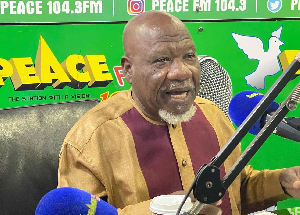
Ahead of the 2024 elections, Ghana's politics are intensifying as accusations and denials take center stage in public conversation. The New Patriotic Party (NPP) was recently accused by the National Democratic Congress (NDC) of planning to rig the next elections. There are allegations that NPP members, including a senior military officer, are hiding firearms, printing ballots without authorization, and hoarding materials purportedly meant to rig the election, according to Sammy Gyamfi, the National Communications Officer for the NDC.
However, there have been some challenges to these charges. The accusations have been rejected as baseless by former NDC stalwart turned critic Bernard Allotey Jacobs. Speaking on a well-known morning show, Jacobs implied that the charges are only an attempt by the NDC to come up with justifications for a possible loss. He believed that in order to please its members and keep their trust as the election season progresses, the NDC is making up these allegations.
Furthermore, Jacobs maintained that the emphasis should be on the NPP's capacity to win over a wider range of voters, especially with Dr. Mahamudu Bawumia serving as its leader. He said that Bawumia's rising popularity is a major issue that could affect the outcome of the election and that many Ghanaians find him to be a figure who shares their goals. The NDC's charges and Jacobs' contemptuous behavior are part of a broader story of political rivalry and mistrust that has always defined Ghana's electoral procedures.
The political climate is anticipated to worsen as both parties prepare for the elections in December 2024. Regardless of their veracity, analysts caution that if these accusations are not handled openly, they may widen rifts and undermine public confidence in democratic institutions. Calls for an impartial and strong control of the electoral process are intensifying with the elections just over a year away. A credible and peaceful election is anticipated to be ensured in large part by the Electoral Commission, civil society organizations, and foreign observers. As the country closely monitors, there is still optimism that accountability and the truth will win out, strengthening national unity and confidence in the democratic process.